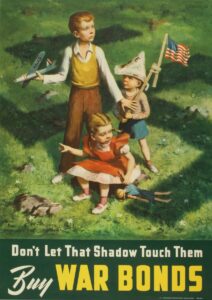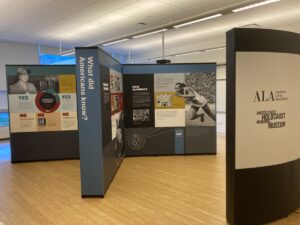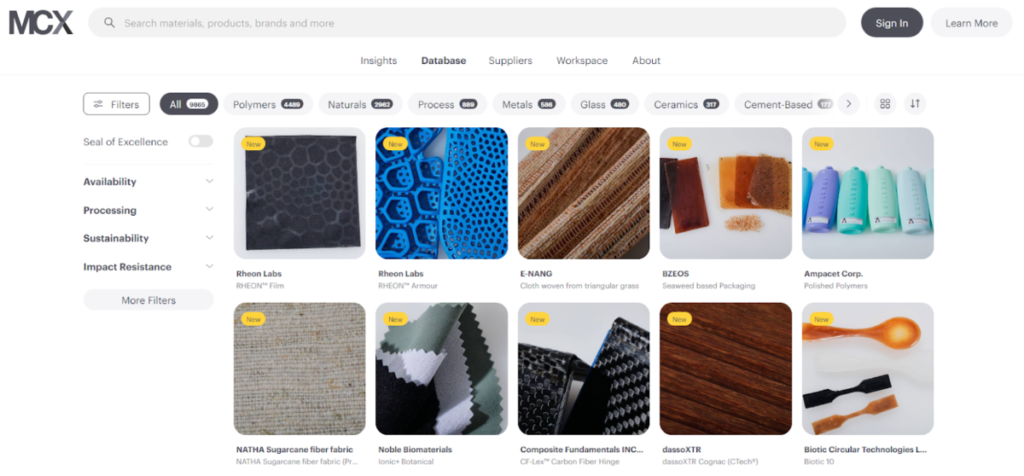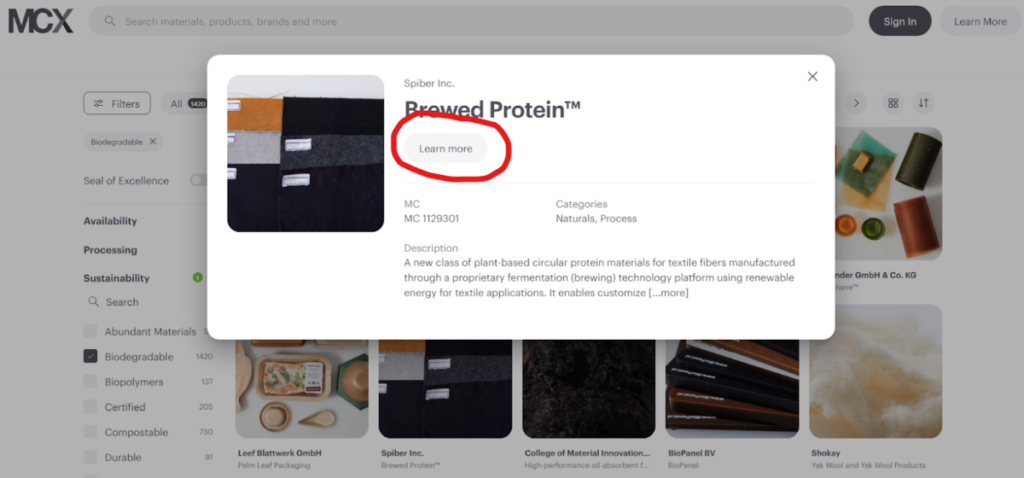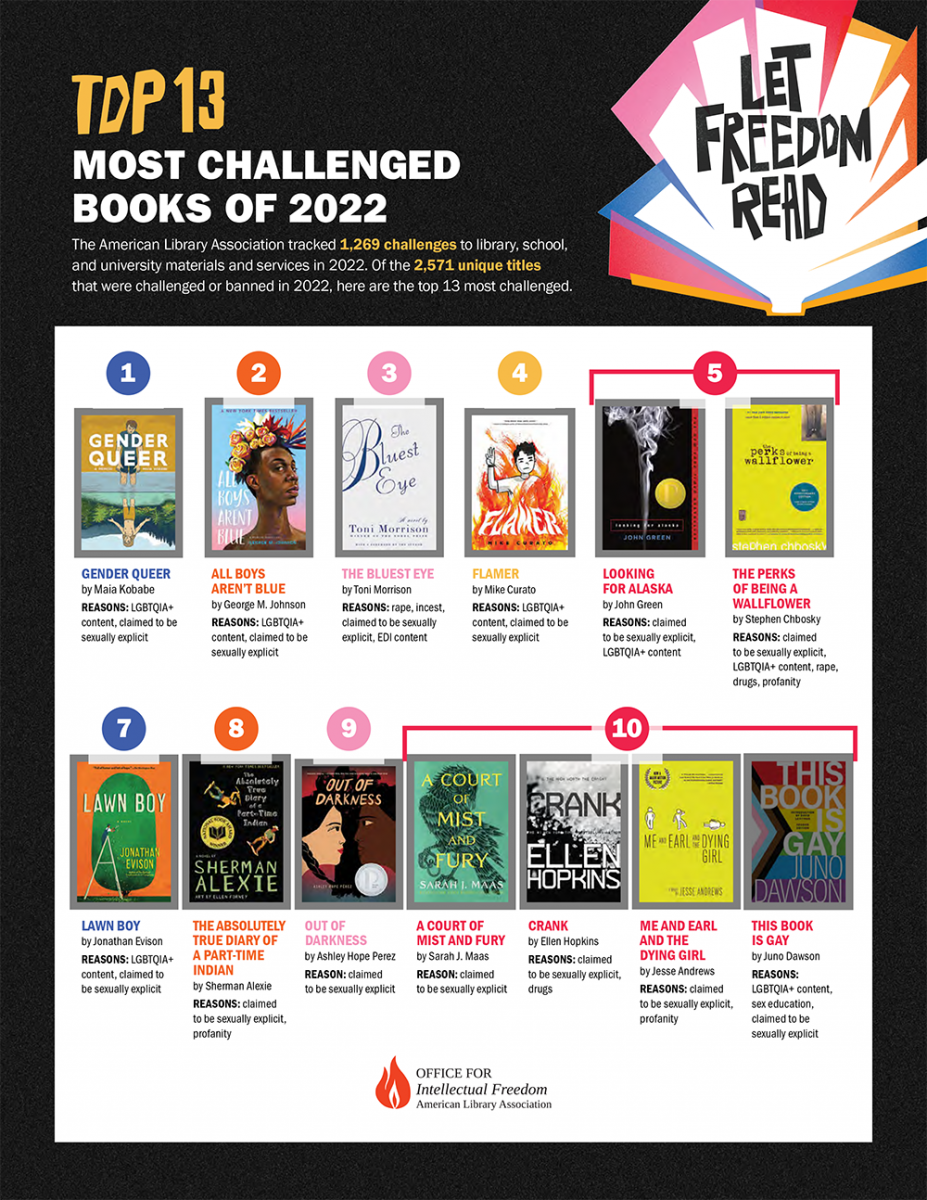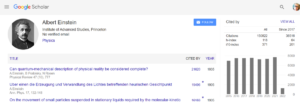 Google Scholar Profile
Google Scholar Profile
Dec. 13, 11 AM -12 PM
Google Scholar Profiles provide an easy way for you to showcase your individual scholarship and, more importantly, easily examine who is citing your work and find citation counts.
Registration
Americans and the Holocaust public events: December 4, 5, & 7
This week the Ursula C. Schwerin Library continues hosting and co-hosting a number of events related to the “Americans and the Holocaust” traveling exhibition. These include a virtual event via Zoom at 6:00 pm on Monday, December 4 about the 1938 Evian Conference; a virtual Zoom conversation with a scholar of immigration and his students at 10:00 am on Tuesday, December 5; and an in-person event on Thursday, December 7 at 11:30 on the Nazis and Ku Klux Klan in New York City and State. To register, please click here.
November 30: “Racism, Eugenics & Antisemitism” discussion
It is not too late to register for “Racism, Eugenics & Antisemitism: Connections Between Jim Crow and the Nuremberg Race Laws,” an event featuring Tom White, Coordinator of Educational Outreach at the Cohen Center for Holocaust and Genocide Studies at Keene (NH) State College. The program is being held here at City Tech in cooperation with Queensborough Community College’s Kupferberg Holocaust Center. The event is on Thursday November 30 and runs from 1:00-2:15. One may attend in person or online via Zoom. For more details, please click here. After the event attendees will have the opportunity to explore the two galleries.
Please note that no coats or bags will be allowed in the event or exhibit spaces and must be checked. Please enter via the Community Center, 287 Jay Street. See directions here.
Workshop, Dec. 5, Get Organized! Zotero Basics
Get Organized! Zotero Basics
Dec. 5, 4-5 PM
Attendees will learn the capabilities of this powerful, free open-source reference management software program. The session covers the functionalities of the Zotero client, adding the Zotero plugin to your browser, and importing citations to generate a bibliography. To maximize our workshop time, please download Zotero from https://www.zotero.org and create your username and password in the Zotero client software by going to EDIT > PREFERENCES > >SYNC
Registration
Spotlight on: Material Connexion
Material Connexion is a database that the City Tech Library provides access to. You can get started at cityte.ch/mcx or by searching for it on the A-Z Database list.
By searching Material Connexion, you can learn about the properties of various types of materials and search for physical materials using filters like their sustainability, impact resistance, availability, and processing. They’ve just redesigned their database interface, so it’s worth checking out!
After searching and filtering from the main page of the database, selecting a result will open a pop up where you can click to “learn more”:
When you open the full result for a type of material, you can explore more details about its properties, processing, and sustainability. You can also check out more images of the material. Information provided for these search results comes straight from the manufacturer or supplier.
Questions? Feel free to ask a librarian!
Listen to NPR’s archive through the Gale Literature Resource Center

Image: National Public Radio logo, ™/®National Public Radio, Public domain, via Wikimedia Commons
Did you know that, in addition to thousands of full-text literary sources and associated reference material, Gale Literature Resource Center provides access to an audio archive from NPR. Head over to http://cityte.ch/gls to begin exploring; if you’re off campus, you’ll be asked to first use your CUNY login before accessing the database.
Search the main search box for “national public radio” to start browsing:
Or, head to the advanced search page and search “national public radio” in the Publisher field:
Your results can be filtered by topic, or you’ll have an opportunity to search within these results:
Or, use the following links to arrive straight at the recording archive of a few notable NPR shows; these links will also require that you sign in with your CUNY login if you’re off campus:
All Things Considered, 1999 to the present
Talk of the Nation, 1996 – 2013
Fresh Air, 2009 to the present
Weekend Edition on Saturday and Sunday (2000 to the present)
Happy listening!

Workshop, Nov. 1, Academic Works Demystified
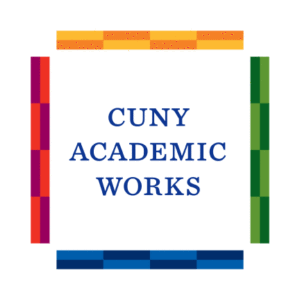 Academic Works Demystified
Academic Works Demystified
Nov. 1, 4-5 PM
What is Academic Works and how does it benefit you as a scholar? You will learn more about how and why publishers allow you to contribute to Academic Works and the many benefits to sharing your scholarship openly to you, your students, and the public.
Registration
Open Access and knowledge as a public good
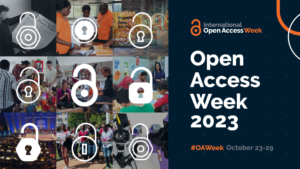 Open access is not a business model; rather, it is a philosophy and ethos as well as a practice. It expanded and came into full maturity in the mid-aughts after its initial development during the 1990s, followed by several years of innovation in the early-aughts. During this era (the early 2000s), the movement grew significant enough that a turning point had been reached; stakeholders in scholarly communications came together to issue a series of three declarations supporting open access. These three declarations are, in shorthand, called the 3Bs: Budapest (BOAI) (2002), Bethesda (2003), and Berlin (2003).
Open access is not a business model; rather, it is a philosophy and ethos as well as a practice. It expanded and came into full maturity in the mid-aughts after its initial development during the 1990s, followed by several years of innovation in the early-aughts. During this era (the early 2000s), the movement grew significant enough that a turning point had been reached; stakeholders in scholarly communications came together to issue a series of three declarations supporting open access. These three declarations are, in shorthand, called the 3Bs: Budapest (BOAI) (2002), Bethesda (2003), and Berlin (2003).
The concept of knowledge as a public good is referenced in the BOAI:
“An old tradition and a new technology have converged to make possible an unprecedented public good. The old tradition is the willingness of scientists and scholars to publish the fruits of their research in scholarly journals without payment, for the sake of inquiry and knowledge.”
Open access is at its essence a philosophical notion with the guiding principle that scholarly content should be available to all readers without restriction because knowledge itself is a public good and cannot be bought and sold. The idea of knowledge as a public good derives from the work of Charlotte Hess and Elinor Ostrom’s conception of knowledge-as-commons.
Peter Suber provided an excellent overview of this important economic concept in an essay, originally published in the SPARC Open Access Newsletter (Nov. 2, 2009), reprinted in Knowledge Unbound: Selected Writings on Open Access, 2002–2011. In brief, a public good is “non-rivalrous and non-excludable,” meaning that it is non-competitive and available to anyone and unaffected by consumption. New knowledge only adds to existing knowledge, and anyone can gain knowledge by learning in varied ways. It is important to differentiate knowledge as a public good versus knowledge captured in texts which are not a public good. Suber argued that when knowledge in text form is digital, it is no longer rivalrous or excludable. Unfortunately, the scholarly publishing system has not evolved to embrace this ethos.
Open access journals, according to the BOAI, “will not charge subscription or access fees, and will turn to other methods for covering their expenses.” This proviso related to “other methods” is important to subsequent discussion of the various models for open access publishing and how article processing charges (author fees) fit in. Open access publishing has increasingly taken the form of a business and this year’s theme for Open Access Week is Community over Commercialization.
When open access is positioned as a business model that will solve the problem of overpriced journals, this interpretation of open access has proven troubled. Open access has not resulted in moderating journal pricing, whether for subscriptions or, in our current environment, author fees for immediate open access. The 20th anniversary of the BOIA declares that diamond open access, open access without fees to authors, should be supported instead of commercialized open access. Lastly, let’s not forget that platforms like CUNY Academic Works also allow us to share our work freely.
this blog post is adapted from my forthcoming book (Winter/Spring 2024) from the Association of College and Research Libraries.
We’re running our annual Academic Works Demystified workshop next week, Nov. 1, 4-5 PM. The workshop addresses what is Academic Works and how it benefits you as a scholar. You will learn more about how and why publishers allow you to contribute to Academic Works and the many benefits to sharing your scholarship openly to you, your students, and the public. The workshop will be on Zoom.
Borrow Current Magazines from the City Tech Library
Did you know that City Tech library subscribes to current magazines? These are available for use during library open hours; read more on the library website about how to access these at our Periodicals Desk.
What’s available for you to read?
Anyone with a City Tech ID can access these magazines, but they’ll be most relevant to students in law & paralegal studies, dental hygiene & restorative dentistry, and vision care technology. We currently subscribe to:
- Journal of Dental Technology
- Journal of Periodontology
- Clinical Advances in Periodontics
- 20/20
- Eyecare Business
- Facts & Findings: the official publication of the National Association of Legal Assistants
- National Paralegal Reporter
Do you have questions about finding current magazines to read? Ask a librarian!
Celebrate Banned Books Week: Let Freedom Read (October 1-7, 2023)
Every year, the American Libraries Association celebrates Banned Books Week to promote reading and intellectual freedom. This year’s theme is “Let Freedom Read.”
Banned Books Week brings together librarians, booksellers, publishers, journalists, teachers, and readers of all types in shared support of the freedom to publish, read, and express ideas, even those some consider taboo.
By focusing on efforts across the country to restrict access to books, Banned Books Week draws national attention to the harms of censorship. The books featured during Banned Books Week have all been targeted for removal in libraries and schools.
In our current climate of political polarization, librarians are facing an unprecedented number of attempts to ban books. ALA’s Office for Intellectual Freedom documented 1,269 demands to censor library books and resources in 2022, the highest number of attempted book bans since ALA began compiling data about censorship in libraries more than 20 years ago. Of the record 2,571 unique titles targeted for censorship, most were by or about LGBTQ+ persons and Black, Indigenous, and people of color.
Celebrate Banned Books Week with the City Tech Library. Exercise your reading rights and check out a banned book! We have many “banned books” in our collection, and a librarian can help you find one.

